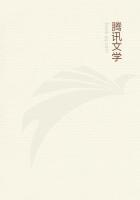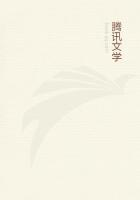It was of the organ-builder that I had Thackeray's books first. He knew their literary quality, and their rank in the literary, world; but I believe he was surprised at the passion I instantly conceived for them.
He could not understand it; he deplored it almost as a moral defect in me; though he honored it as a proof of my critical taste. In a certain measure he was right.
What flatters the worldly pride in a young man is what fascinates him with Thackeray. With his air of looking down on the highest, and confidentially inviting you to be of his company in the seat of the scorner he is irresistible; his very confession that he is a snob, too, is balm and solace to the reader who secretly admires the splendors he affects to despise. His sentimentality is also dear to the heart of youth, and the boy who is dazzled by his satire is melted by his easy pathos. Then, if the boy has read a good many other books, he is taken with that abundance of literary turn and allusion in Thackeray; there is hardly a sentence but reminds him that he is in the society of a great literary swell, who has read everything, and can mock or burlesque life right and left from the literature always at his command. At the same time he feels his mastery, and is abjectly grateful to him in his own ****** love of the good for his patronage of the unassuming virtues.
It is so pleasing to one's 'vanity, and so safe, to be of the master's side when he assails those vices and foibles which are inherent in the system of things, and which one can contemn with vast applause so long as one does not attempt to undo the conditions they spring from.
I exulted to have Thackeray attack the aristocrats, and expose their wicked pride and meanness, and I never noticed that he did not propose to do away with aristocracy, which is and must always be just what it has been, and which cannot be changed while it exists at all. He appeared to me one of the noblest creatures that ever was when he derided the shams of society; and I was far from seeing that society, as we have it, was necessarily a sham; when he made a mock of snobbishness I did not know but snobbishness was something that might be reached and cured by ridicule. Now I know that so long as we have social inequality we shall have snobs; we shall have men who bully and truckle, and women who snub and crawl. I know that it is futile to, spurn them, or lash them for trying to get on in the world, and that the world is what it must be from the selfish motives which underlie our economic life. But I did not know these things then, nor for long afterwards, and so I gave my heart to Thackeray, who seemed to promise me in his contempt of the world a refuge from the shame I felt for my own want of figure in it. He had the effect of taking me into the great world, and ****** me a party to his splendid indifference to titles, and even to royalties; and I could not see that sham for sham he was unwittingly the greatest sham of all.
I think it was 'Pendennis' I began with, and I lived in the book to the very last line of it, and made its alien circumstance mine to the smallest detail. I am still not sure but it is the author's greatest book, and I speak from a thorough acquaintance with every line he has written, except the Virginians, which I have never been able to read quite through; most of his work I have read twice, and some of it twenty times.
After reading 'Pendennis' I went to 'Vanity Fair,' which I now think the poorest of Thackeray's novels--crude, heavy-handed, caricatured. About the same time I revelled in the romanticism of 'Henry Esmond,' with its pseudo-eighteenth-century sentiment, and its appeals to an overwrought ideal of gentlemanhood and honor. It was long before I was duly revolted by Esmond's transfer of his passion from the daughter to the mother whom he is successively enamoured of. I believe this unpleasant and preposterous affair is thought one of the fine things in the story; I do not mind owning that I thought it so myself when I was seventeen; and if I could have found a Beatrix to be in love with, and a Lady Castlewood to be in love with me, I should have asked nothing finer of fortune.
The glamour of Henry Esmond was all the deeper because I was reading the 'Spectator' then, and was constantly in the company of Addison, and Steele, and Swift, and Pope, and all the wits at Will's, who are presented evanescently in the romance. The intensely literary keeping, as well as quality, of the story I suppose is what formed its highest fascination for me; but that effect of great world which it imparts to the reader, ****** him citizen, and, if he will, leading citizen of it, was what helped turn my head.
This is the toxic property of all Thackeray's writing. He is himself forever dominated in imagination by the world, and even while he tells you it is not worth while he makes you feel that it is worth while. It is not the honest man, but the man of honor, who shines in his page; his meek folk are proudly meek, and there is a touch of superiority, a glint of mundane splendor, in his lowliest. He rails at the order of things, but he imagines nothing different, even when he shows that its baseness, and cruelty, and hypocrisy are well-nigh inevitable, and, for most of those who wish to get on in it, quite inevitable. He has a good word for the virtues, he patronizes the Christian graces, he pats humble merit on the head; he has even explosions of indignation against the insolence and pride of birth, and purse-pride. But, after all, he is of the world, worldly, and the highest hope he holds out is that you may be in the world and despise its ambitions while you compass its ends.















